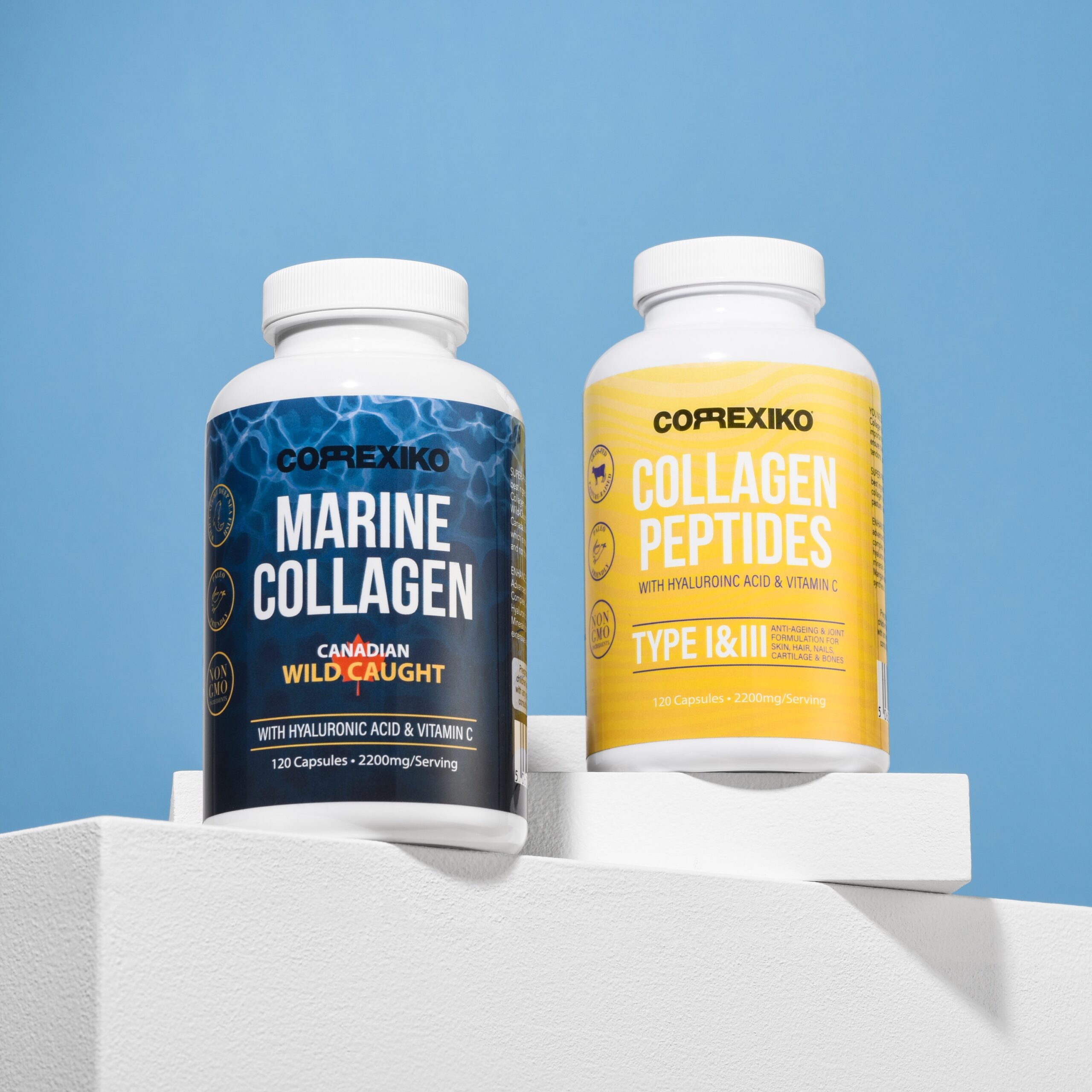Collagen: Everything You Need to Know About This Buzzworthy Protein
Collagen is having a major moment right now. Walk into any grocery store or pharmacy and you’ll likely find an entire section dedicated to collagen alone. With collagen supplements, powders, gummies, and even collagen-infused water on the market, it seems everyone is trying to get in on the collagen craze. But what exactly is collagen and why is it suddenly so popular? Let’s dive in and take a look at the science and benefits of this trendy protein so you can decide if collagen is right for you.
What is Collagen?
Collagen is the most abundant protein in the human body. It makes up about 30% of all of the protein in the body. Collagen is the main structural protein that forms connective tissues like skin, bones, tendons, and ligaments. It consists of amino acids wound together to form triple-helix protein fibers. Think of it like scaffolding that provides structure and stability for the skin and joints. Young, healthy bodies produce a lot of collagen to keep skin firm, bones strong, and joints flexible.
However, as we age, collagen production starts to decline. This leads to common signs of aging like wrinkles, sagging skin, stiff joints, and weakened bones. Some even think the collagen decline contributes to cellulite as the scaffolding that keeps skin taut starts to disintegrate. This age-related collagen decline is why so many people are turning to collagen supplements and treatments hoping to turn back the clock. The collagen hype promises glowing skin, reduced wrinkles, healthier joints and nails, shinier hair, and even claims about weight loss and gut health.
With the anti-aging collagen market projected to reach $7.5 billion by 2027, I had to find out – can collagen supplements really deliver all these benefits? Let’s take a closer look!
Collagen Sources: Where Does Collagen Come From?
The collagen supplements on the market primarily come from four main sources:

Bovine Collagen – Collagen from cows or beef protein. This is the most common and cheapest source.
Marine Collagen – Collagen sourced from fish skin and scales. Considered more bioavailable than bovine but can have a fishy taste.
Porcine Collagen – Collagen from pig skin similar to bovine collagen. Often avoided for religious reasons.
Chicken Collagen – Collagen derived from chicken cartilage and eggshell membranes. For people avoiding red meat.
The type of collagen depends on the source. Bovine collagen supplements usually contain type I and type III collagen. Type I helps form skin, bones, teeth, tendons, and ligaments. Type III collagen supports the structure of muscles, arteries, and organs. These are also the most abundant types of collagen in the human body. So bovine or marine collagen supplements may be the closest match for replacing the collagen your body needs.
Top 5 Science-Based Collagen Benefits
Over 20,000 scientific studies have been published on collagen and its potential health benefits. Here are some of the top collagen benefits backed by science:
- Reduces signs of skin aging. Multiple studies find that taking collagen supplements for at least 6 weeks significantly improves skin hydration, elasticity, and wrinkles. The collagen supplements may help the body generate new collagen.
- Relieves joint pain. Clinical studies found collagen supplements reduced symptoms of osteoarthritis and improved joint mobility and flexibility after just 3 months. Collagen may help repair cartilage damage as well.
- Strengthens brittle nails. One study had 25 participants take 2.5–5 grams of collagen daily for 24 weeks. This led to a 12% average increase in nail thickness and reduced nail breakage.
- Helps build muscle mass. Consuming collagen protein before or after exercise was found to significantly increase muscle mass and strength in men. It may stimulate protein synthesis.
- Improves gut health. Some studies suggest collagen supplements may improve intestinal permeability and aid digestion. The amino acids like glycine support the gut lining.

The research on collagen for hair growth, cellulite reduction, and weight loss shows mixed results so far. More studies may be needed to confirm benefits for these conditions.
Should You Try Collagen Supplements?
Collagen shows real promise as a safe and natural way to improve skin and join health as we age. But with so many collagen products out there, how do you choose? Here are my tips:
- Stick to reputable brands that source quality ingredients like Vital Proteins, Ancient Nutrition, and Perfect Keto. Research sources and processing.
- Liquid collagen or collagen peptides are best. The hydrolyzed collagen is broken down for better absorption.
- Take 2-5 grams daily for at least 6 weeks for best results. You can add collagen peptides to smoothies.
- Collagen works best combined with vitamin C which helps collagen synthesis. Consider a vitamin C supplement for enhanced benefits.
- Add collagen-rich foods like bone broth, eggs, citrus, berries, and dark greens to support your gut health and skin.
- Be patient. Research shows it takes weeks to start seeing collagen benefits. Stick with it!
The Bottom Line on Collagen
Science shows targeted collagen supplementation can help counteract natural collagen decline and support skin, joint, nail, and gut health as we age. Adding a collagen supplement along with vitamin C and collagen-rich foods offers natural approach to maintaining youthful vitality. As always, talk to your doctor before starting any new supplement.






